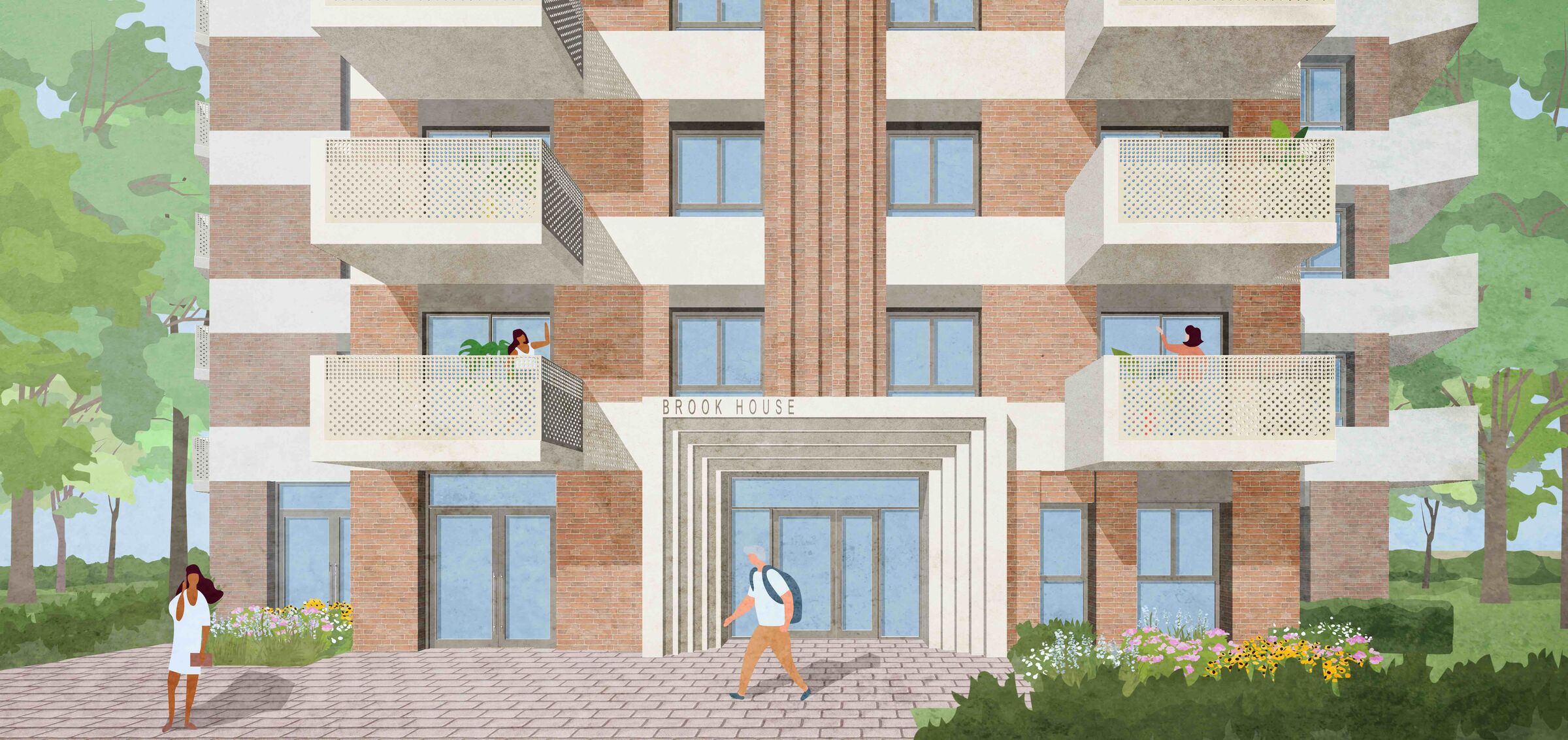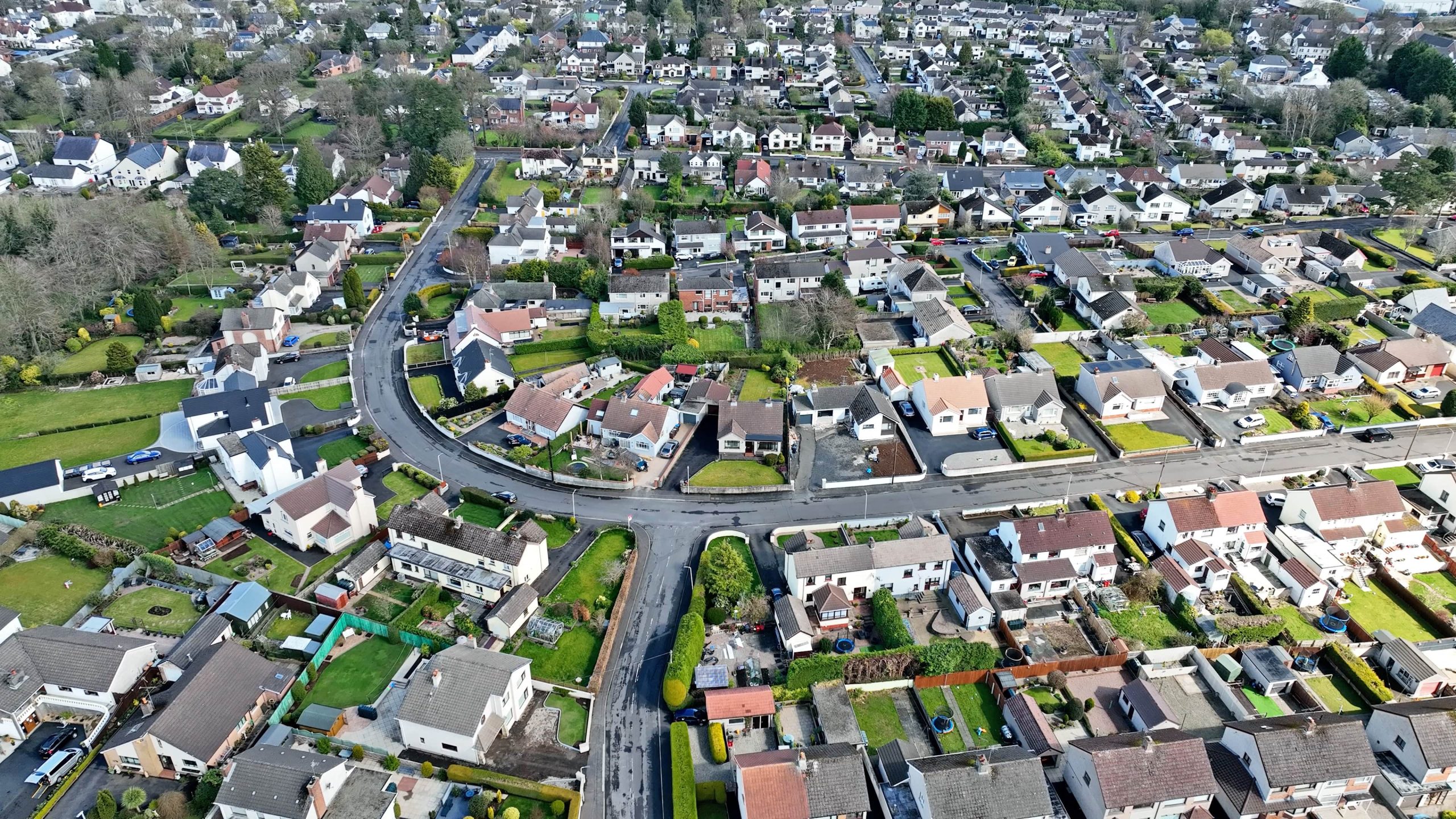Can Social Housing Fight Gender Inequality and Climate Change?

Planning permission has been granted to provide over 100 affordable low-carbon homes to women in Acton, London. Housing Industry Leaders explores how the redevelopment will encourage inclusivity and decarbonisation.
Ealing Council have approved plans for GRID Architects to deliver the women’s only social housing estate with the support of Women’s Pioneer Housing, who strive to provide affordable homes to women while fighting gender inequality.
The proposal is to replace the existing building on the site, which was built in the 1930s and houses 39 flats, with Brook House, a development comprising of 102 social homes within a 15-storey tower with two wings of 11 and 13 storeys on either side.
Existing tenants, most of whom represent an older demographic, will be welcomed to return to the site, where they will be homed in residences nearly twice as large as their current flats.
Of the 102 new homes, two will be 2-bedroom flats, and the rest 1-bedroom, all of which will have dual aspect and a balcony. To enhance biodiversity and greening, recreational spaces will be created, and the mature trees on the site will be preserved.
The development features a host of sustainable options
In an effort to be as sustainable as possible, a car-free approach has been taken, with only three disabled parking bays and bicycle storage. Solar PV panels will also be installed on the roof, and gas boilers have been foregone in favour of heat pumps, which will provide both heat for homes and hot water.
Furthermore, a Mechanical Ventilation with Heat Recovery System (MVHR) will ensure each flat has access to fresh air even with closed windows, and Waste Water Heat Recovery (WWHRS) for each bathroom. All light fittings in the development will be LED.
As a result of low-carbon measures, energy consumption will be a fraction of what it is in the existing building.
Homes are reserved for those in need
Brook House aims to provide access for single women who face inequality, abuse, and disadvantages, who otherwise would be unable to access the housing market. Ten of the new flats will be reserved specifically for people with disabilities.
Women’s Pioneer Housing recognise the need for social housing for women: “With rising levels of inequality for women in the UK, particularly those who are older, have a disability or are BAME women, there is a huge existing demand for this type of housing.”
Currently in Ealing, over 600 single women are on the social housing waiting list.
GRID Architects director Colin Veitch said: “This planning success is the result of extended discussions with stakeholders and a client who had the vision to support a creative architectural solution to the site constraints.
Ultimately, this has delivered a development that provides critical housing to women in need, with safe access to outdoor amenity space, while positively contributing to the local area, both now and in the years to come.”
In a previous interview with Dezeen, he added: “WPH have asked that at detailed design stage we should investigate things like lower kitchen counters, which might suit female residents better than standard kitchens, and enhanced ventilation controls to ensure comfort for menopausal women.”
The development benefits from additional support
Also supporting the development is L&Q, a leading residential developer who aim to deliver affordable, high quality homes.
Their Build London Partnership scheme, in collaboration with the Greater London Authority, strive to make housing accessible for hard-to-reach communities, in an effort to provide a solution to London’s housing crisis.
Additionally, around £450,000 of funding has been made available through Section 106 contributions towards highway improvements, air quality, the town centre, apprenticeships and training.

